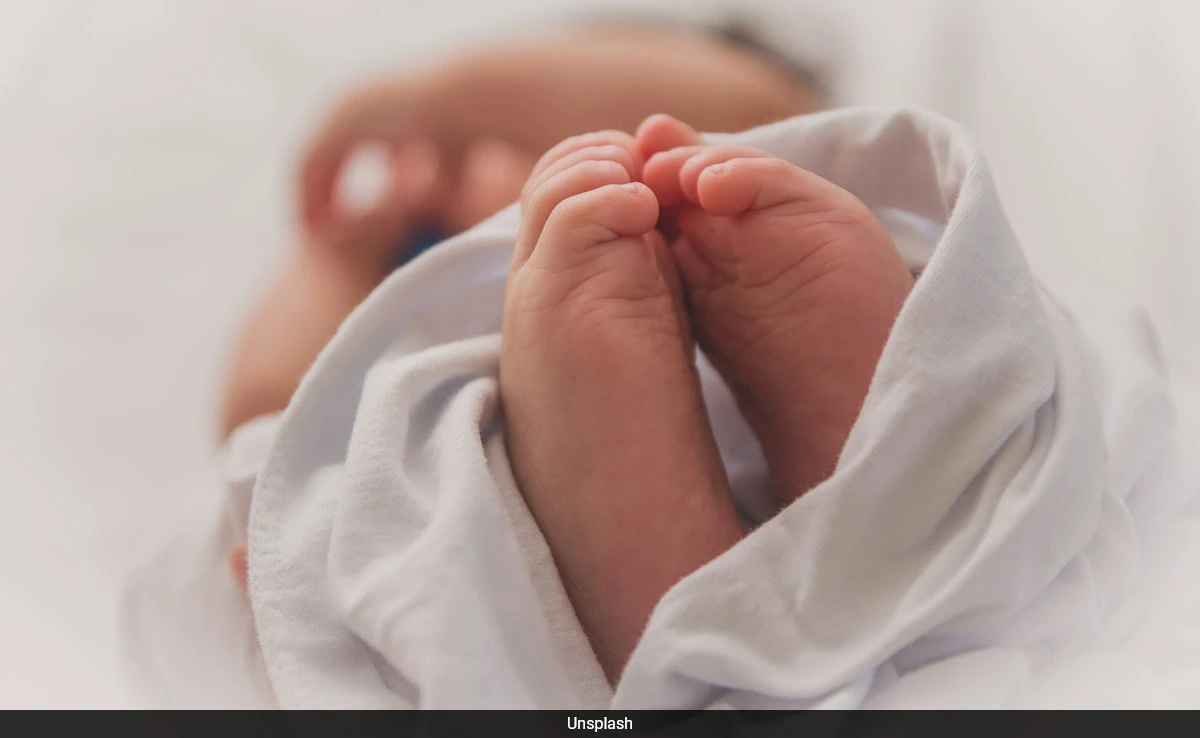In a landmark medical achievement, eight healthy babies have been born in the UK using a revolutionary IVF technique designed to reduce the risk of inheriting genetic diseases from their mothers.
The successful outcomes, announced Wednesday as part of a world-first trial, mark a significant step forward in reproductive medicine.
The groundbreaking procedure offers new hope to women carrying mutations in their mitochondrial DNA. These mutations can lead to debilitating or even deadly genetic diseases being passed on to their children.
One out of every 5,000 births is affected by mitochondrial diseases, which cannot be treated, and include symptoms such as impaired vision, diabetes and muscle wasting.
According to the results of the much-awaited UK trial, which were published in ,this new IVF method aims to prevent such transmission, allowing these women to have children without the fear of their offspring inheriting these severe conditions.
All eight babies show no signs of having mitochondrial DNA disease. The babies, four girls and four boys, including one set of identical twins, were born to seven women at high risk of transmitting serious disease caused by mutations in mitochondrial DNA. The findings, reported today by the Newcastle team who pioneered mitochondrial donation using fertilised human eggs, indicate that the new treatment, known as pronuclear transfer, is effective in reducing the risk of otherwise incurable mitochondrial DNA diseases.
How ‘Three-Parent’ IVF Works: The Science Behind This Fertility Breakthrough
According to the ,the infants were conceived through mitochondrial donation, a technique that involves transferring the nucleus of a fertilised egg that has faulty mitochondria cells’ energy factories into a donor egg cell with healthy mitochondria. It aims to prevent babies inheriting harmful mutations from their mother’s mitochondrial DNA, which can cause debilitating diseases affecting power-hungry tissues such as those in the heart, brain and muscles.
“This is a landmark study on preventing mitochondrial disease,” says Dietrich Egli, a stem-cell scientist at Columbia University in New York City. The procedure has been dubbed three-person in vitro fertilization (IVF), because the resulting children carry nuclear DNA from a biological mother and father, alongside mitochondrial DNA from a separate egg donor.
According to a ,the findings describe the reproductive and clinical outcomes of pronuclear transfer treatments performed to date. All babies were healthy at birth, meeting their developmental milestones, and the mother’s disease-causing mitochondrial DNA mutations were either undetectable or present at levels that are very unlikely to cause disease.
The technique was pioneered in human eggs by a team based at Newcastle University, UK and the Newcastle upon Tyne Hospitals NHS Foundation Trust in work funded by Wellcome and NHS England.
The mother of a baby girl born following mitochondrial donation said: “As parents, all we ever wanted was to give our child a healthy start in life. Mitochondrial donation IVF made that possible. After years of uncertainty this treatment gave us hope-and then it gave us our baby. We look at them now, full of life and possibility, and we’re overwhelmed with gratitude. Science gave us a chance.”
The mother of a baby boy added: “We are now proud parents to a healthy baby-a true mitochondrial replacement success. This breakthrough has lifted the heavy cloud of fear that once loomed over us.
“Thanks to this incredible advancement and the support we received, our little family is complete. The emotional burden of mitochondrial disease has been lifted, and in its place is hope, joy, and deep gratitude.”
The NHS Mitochondrial Reproductive Care Pathway offers mitochondrial donation, through a research study, in addition to other reproductive options for women with mitochondrial disease.
Professor Sir Doug Turnbull, Newcastle University part of the Newcastle team said: “Mitochondrial disease can have a devastating impact on families. Today’s news offers fresh hope to many more women at risk of passing on this condition who now have the chance to have children growing up without this terrible disease. Within the framework of the NHS in a well-regulated environment, we are able to offer mitochondrial donation as part of a research study to affected women in the UK.”
